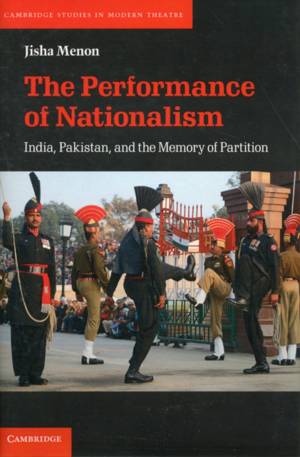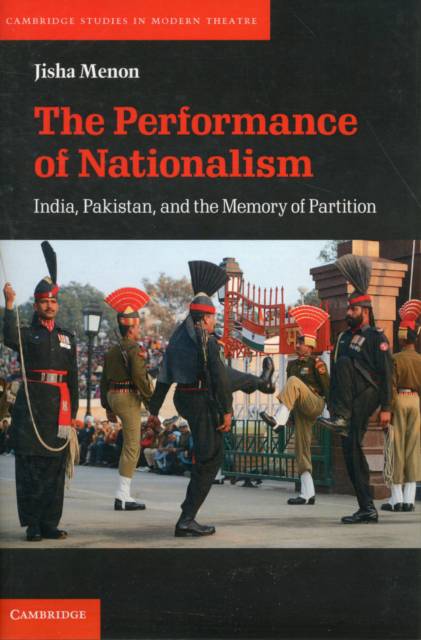
- Afhalen na 1 uur in een winkel met voorraad
- Gratis thuislevering in België vanaf € 30
- Ruim aanbod met 7 miljoen producten
- Afhalen na 1 uur in een winkel met voorraad
- Gratis thuislevering in België vanaf € 30
- Ruim aanbod met 7 miljoen producten
Zoeken
€ 97,95
+ 195 punten
Uitvoering
Omschrijving
Imagine the patriotic camaraderie of national day parades. How crucial is performance for the sustenance of the nation? The Performance of Nationalism considers the formation of the Indian and Pakistani nation, in the wake of the most violent chapter of its history: the partition of the subcontinent. In the process, Jisha Menon offers a fresh analysis of nationalism from the perspective of performance. Menon recuperates the manifold valences of "mimesis" as aesthetic representation, as the constitution of a community of witnesses, and as the mimetic relationality that underlies the encounter between India and Pakistan. The particular performances considered here range from Wagah border ceremonies, to the partition theatre of Asghar Wajahat, Kirti Jain, M. K. Raina, and the cinema of Ritwik Ghatak and M. S. Sathyu. By pointing to the tropes of twins, doubles, and doppelgangers that suffuse these performances, this study troubles the idea of two insular, autonomous nation-states of India and Pakistan. In the process, Menon recovers mimetic modes of thinking that unsettle the reified categories of identity politics.
Specificaties
Betrokkenen
- Auteur(s):
- Uitgeverij:
Inhoud
- Aantal bladzijden:
- 272
- Taal:
- Engels
- Reeks:
Eigenschappen
- Productcode (EAN):
- 9781107000100
- Verschijningsdatum:
- 7/01/2013
- Uitvoering:
- Hardcover
- Formaat:
- Genaaid
- Afmetingen:
- 150 mm x 231 mm
- Gewicht:
- 539 g

Alleen bij Standaard Boekhandel
+ 195 punten op je klantenkaart van Standaard Boekhandel
Beoordelingen
We publiceren alleen reviews die voldoen aan de voorwaarden voor reviews. Bekijk onze voorwaarden voor reviews.











